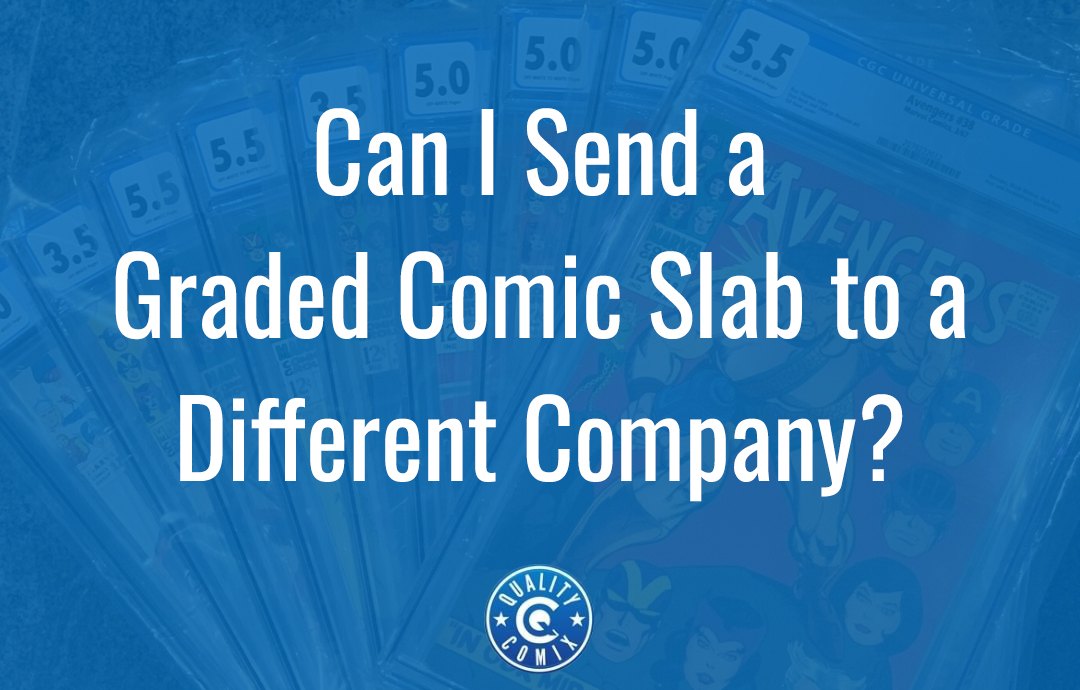
In a past post, we talked about the different companies that offer grading services for comics. The biggest player in the space is CGC, but others, like CBCS, PGX, and EGS, all offer their own versions of the service. They have their own grading staff, their own grading standards, and their own slabs with their own seals of authenticity.
Sometimes, you might send a comic to one company, get a slabbed, graded comic back, and decide you didn't like how the process went. Maybe you find that a PGX-graded comic put your book at a lower grade than you think it deserves. Maybe you sent your book to EGS and expected a price hike for the graded book, only to find that the comparatively smaller name recognition and the skepticism over their grading practices means it doesn't have a premium at all. Instead, you want to send your book to CGC after all, to fetch that primo name recognition.
Can you do it? Are there special considerations? Let's discuss.
Table of Contents
Can You Send a Slabbed Book to Another Company?
Yes!
In fact, most of the grading companies actually love this. By sending a CGC comic to PGX, you're telling PGX you want to trust them over CGC, and vice versa. It's something of a vote of confidence in the quality of service of the grading company you choose second (or, at least, a vote against the one you're moving away from.)
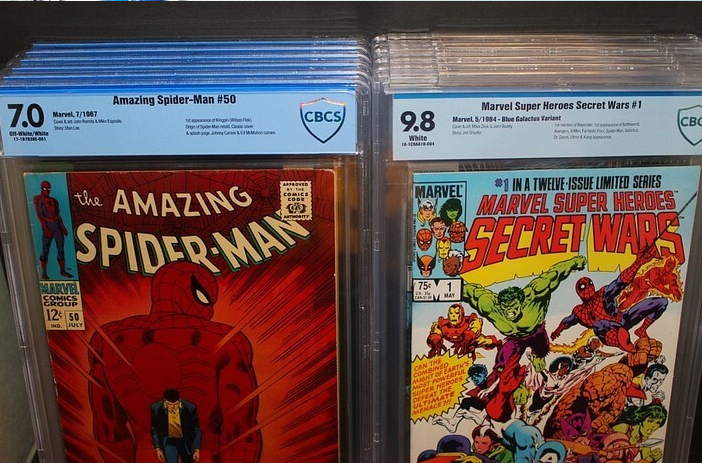
Image source: Google Images
As far as we're aware, there are no grading companies that outright reject graded slabs from other companies. After all, if nothing else, you're paying the company to crack a slab, grade, and re-slab a comic, and they're certainly going to oblige.
Do You Need to Crack the Slab?
No, but you might want to, depending on the rarity, quality, and condition of the comic.
The slab will need to be cracked and the comic extracted sooner or later. The new grading company won't just certify the comic at the same grade as the previous company, sight unseen. They'll want to open it up, inspect it, and apply their own grading standards to the book. That means they have to be able to remove the comic from the slab, and since most slabs are designed to be tamper-proof or tamper-evident, that means cracking the slab.
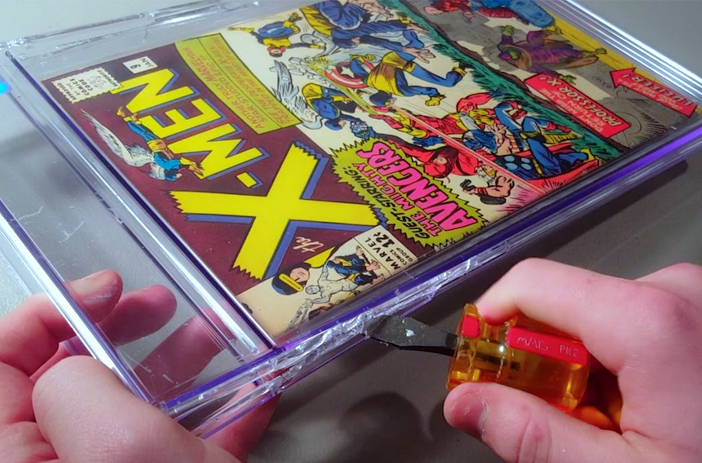
Image source: Google Images
The way we see it, you can go either way.
Remove the book from the slab if it's relatively low value, if you want an unbiased look at the comic's condition from the new grading company, or if you want an added service like cleaning and pressing to improve the condition of the book.
On the other hand, if the book is very valuable, such that you want it as protected as possible during shipping, or if you work out a special deal with the grading company you're sending it to, you might want to leave it in the slab. Risking damage during transportation might not be worth the bias-free look you'd be giving the new company. More on that in a bit, though.
Is There a Special Tier of Service for Competitor Slabs?
Not generally, no.
In the past, CGC ran a CrossOver promotion. This promotion was a discount of 40-50% off the price of grading if the comic you sent in was already graded by one of their competitors. That promotion has since expired, though there's no way to know whether or not they'll run a similar promotion again in the future.
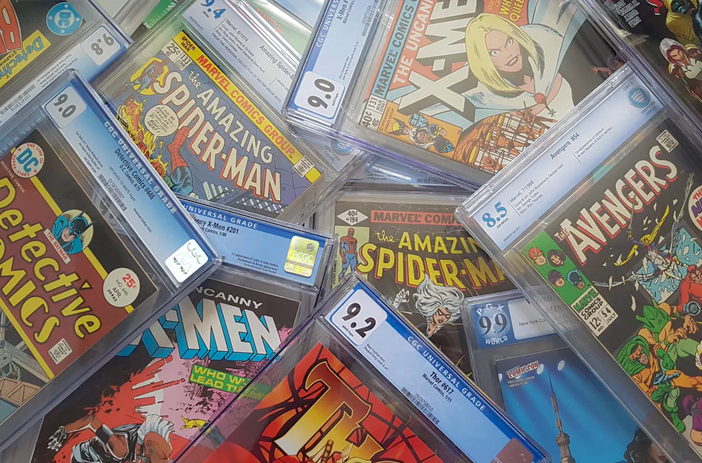
Image source: Google Images
As far as we can tell, none of the other grading companies have similar promotions. CGC even received some pushback with theirs, which may be why they haven't brought it back.
Reholdering doesn't count.
A common question we see is whether or not the reholdering service offered by the grading companies works for "reholdering" comics from another company. The answer here is no. Reholdering is for replacing a damaged or old-style, dated slab from one company with their own updated models. CGC replaces CGC-graded comic slabs with new CGC slabs. PGX replaces PGX-graded slabs with new PGX slabs, and so on.
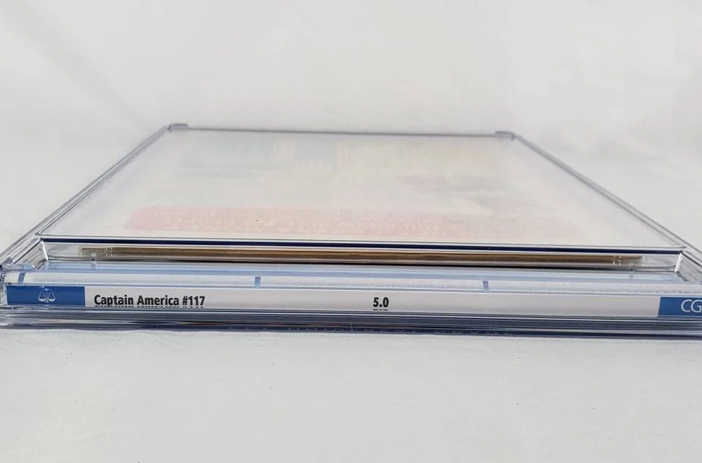
Image source: Google Images
It's not a loophole you can use to maintain the same grade, nor is it a discount to get a new slab from a different company.
Will Your Grade Change?
Yes, probably.
Each of the different grading companies has their own unique grading scale. While all of them are relatively similar, the actual differences between, for example, a 9.6 and a 9.8 may vary dramatically between companies. Something that CBCS grades at an 8.6 might get an 8.5 from CGC, or vice versa. Your grade can change, and it can go up or down, and there's very little way to tell which way it will go.
This is, in fact, one of the reasons why you might consider cracking your comic out of its slab before sending it into a new company. If you send a comic that CBCS graded at 8.5 to CGC, CGC knows that CBCS called it an 8.5 and can use that information intentionally or unintentionally in their own grading process.
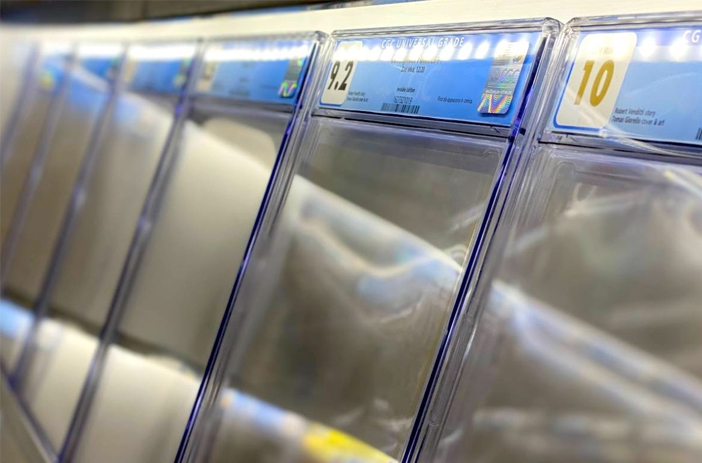
Image source: Google Images
If you think a comic was graded at something below what it should be, removing it from the slab and trying a different company might get you a higher grade than sending it in slabbed.
There's no guarantee of this, of course. Grading should be impartial and not consider previous grades as part of the inspection. However, grading isn't an exact science. It's imprecise and somewhat subjective, and grades can vary in strictness based on a wide range of factors, including which grader examines your book and even the volume of comics being graded at the time. Without having a look inside the actual grading process of each company at the time of grading, there's no way to say how precise it is.
Unless there's significant damage or significant changes in condition over time, chances are that a change in grade is going to be relatively minimal. We're talking 9.8 to 9.6, 9.6 to 9.8, or similar decimal-point changes. Some books go up. Some books go down. Some books stay the same. Unfortunately, there's no real way to tell which will do which until you send them in and see the results.
One note is that some companies (notably CGC) will look at a slabbed book and give you an estimate for what they think it might grade as based on what they can see. If you send in a CBCS 9.5 comic and CGC says, "hey, looking at the cover, we think this will probably grade at a 9.3. Do you want to proceed?" you have the option to change your mind. It's possible that what they find inside will change their estimate, but it's also possible that could be a good thing.
Is Sending a Graded Comic to Another Company Worthwhile?
This is the big question, isn't it?
On the one hand, getting a comic graded by a different company has the potential to increase its grade and even increase its value even if the grade doesn't change. Some grading companies (like CGC) tend to be more reputable and command a higher premium simply because of the name recognition. Others, like EGS, don't have that trust in them, so a high-graded book from that company might not fetch the same price as the same book at the same grade from CGC.
On the other hand, a lot of this is predicated on trust. To wit, some people have concerns about re-grading comics. A common story is that CGC would take a CBCS 9.5 book and "grade" it at 8.5 but offer cleaning and pressing to bring it back to 9.5, effectively extorting the fees for cleaning and pressing out of their captive customers. "Pay up, or you get a worse grade" is, of course, a risk.
To be clear, we haven't seen any firsthand evidence of this happening, just anecdotes and stories that claim it happens. On the other hand, other people present their own evidence that some grades stay the same and others go up even without additional services.
We're not in a position to say whether or not it happens, and we aren't trying to say CGC is any different from any other company, either. All that is to say: buyer beware. Trust the company you send your comics to, and if you don't, take steps to protect yourself.
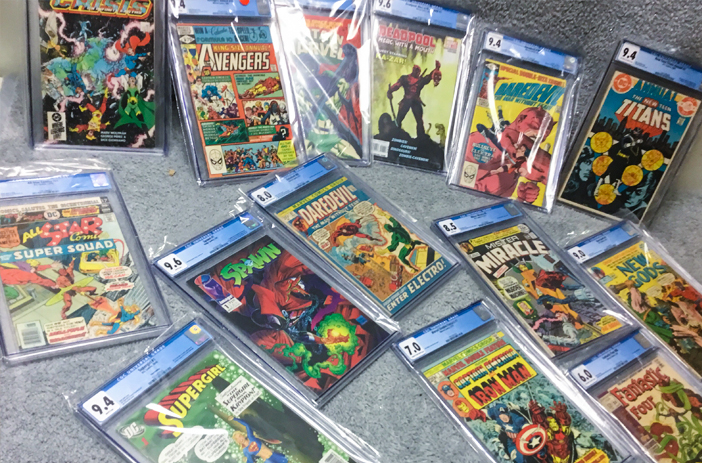
Image source: Google Images
Look at the pros and cons of sending your graded comics to be re-graded by a different company, and decide for yourself if it's worthwhile.
In the pros column, you have:
- The possibility of getting a higher grade from the new company.
- The possibility of a higher value for the comic, either from a higher grade or from more name recognition from the grading company.
- A newer slab of a different style from a different company (which is especially relevant if you're getting older slabs re-done, because old slabs might not be as protective as new slabs.)
- The option to increase grade and value through cleaning and pressing, which may not have been done (or even been possible) when the comic was originally graded.
The upsides are somewhat significant. If you could increase the grade – and thus the value – of a comic substantially, and all it took was a relatively small fee and a bit of wait time, would you do it? Many people would say yes.
On the other hand, it's not without risk.
- If you don't trust the new company, you might believe they're scamming you.
- The new grade could be lower than the old grade, either due to differing standards or changing scales.
- There's always the risk of new damage in shipping or even when the slab is cracked, and the comic is re-graded, though this is relatively rare.
- Going from a reputable grading company like CGC to a less-known company like EGS could lower the value of your comic even if the grade doesn't change.
These are the pros and cons you need to weigh to make your choice.
Is Sending a Graded Comic to Another Company a Good Move For You?
So, should you pull the trigger?
If you think your books are graded higher than they might otherwise deserve, you probably shouldn't have them re-graded because it will likely drop their grade. On the other hand, if you stand to gain a grade increase, if you can have the comics pressed and cleaned to improve their condition, or if you want to move away from an unreputable grading company, then by all means, take advantage of the process.
The truth is, many of the considerations for getting a comic graded by a different company are the same as those if you're getting it graded from raw. You can judge your own raw comics and estimate what grade they might get according to comparable comics online and use that as a baseline just as much as you might use the grade from a different company.
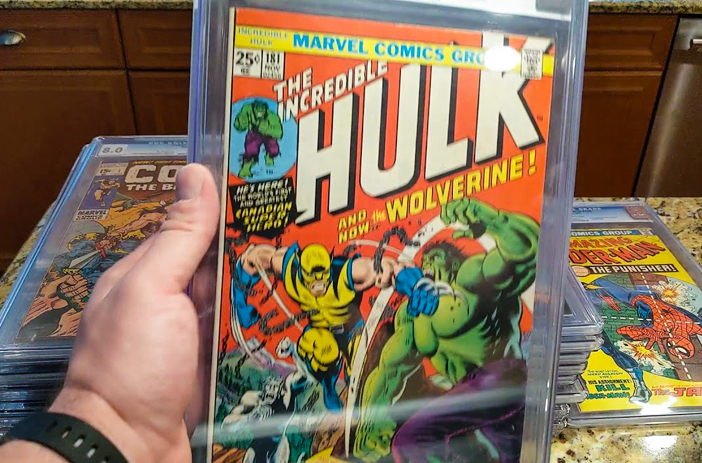
Image source: Google Images
To a certain extent, it kind of amounts to gambling. You can make an educated guess about what the outcome of a new grading process will be, but when tiny details can amount to hundreds or thousands of dollars in difference, it can be quite a risk to take.
Another alternative is to just sell your comics as-is and let someone else make the choice. If you think re-grading your comics would increase their value, then by all means, send them in and have them re-slabbed and re-graded. If you're worried that the grade might drop and you might lose value, though, it might be better to just sell them.
We're happy to talk about all of this with you, including giving you our appraisals of your books. We're not a grading company, of course, but we are comic fans, and we'd love to help you decide on your next steps. Drop us a line, and we can chat about anything, from whether or not you should get them re-slabbed, to what we think they'd be worth, to what you should do with them.

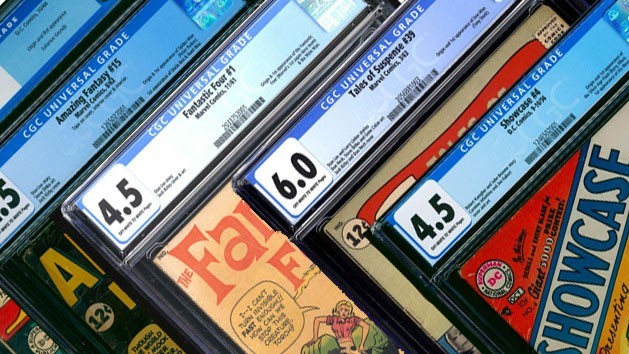
![[Guide] Where is the Best Place to Get Your Comics Graded?](https://www.qualitycomix.com/images/size_f/news-000079.jpg)
